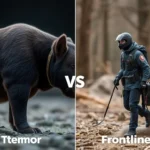
Introduction
Pancreatic cancer in dogs is a serious and often devastating diagnosis that can leave pet owners feeling overwhelmed and uncertain about their furry companions’ future. Understanding this condition is crucial for dog owners, as early detection and intervention can significantly impact the quality of life of affected pets. This blog post aims to provide comprehensive insights and answers from veterinary professionals regarding pancreatic cancer in dogs. We’ll explore the nature of the disease, its symptoms, diagnosis, treatment options, prognosis, and preventive measures, offering valuable information to help you navigate this challenging situation.
Understanding Pancreatic Cancer in Dogs
What is Pancreatic Cancer?
Pancreatic cancer in dogs refers to the development of malignant tumors in the pancreas, an organ responsible for producing enzymes that aid in digestion and hormones like insulin that regulate blood sugar levels. Unlike humans, where pancreatic cancer is often diagnosed at a later stage, dogs may exhibit different symptoms and progression patterns. The disease can be particularly aggressive, and its subtle onset may lead to late-stage diagnoses.
Types of Pancreatic Cancer
There are two main types of pancreatic tumors in dogs: exocrine tumors and endocrine tumors.
- Exocrine tumors, particularly pancreatic adenocarcinoma, are the most common and aggressive form, originating from the cells that produce digestive enzymes.
- Endocrine tumors, such as insulinomas, arise from hormone-producing cells and may lead to issues like hypoglycemia due to excessive insulin production.
Understanding these types helps in recognizing the potential implications for diagnosis and treatment.
Causes and Risk Factors
While the exact causes of pancreatic cancer in dogs are not fully understood, several risk factors have been identified:
- Genetic predispositions: Certain breeds, including the Golden Retriever and German Shepherd, may be more susceptible.
- Environmental factors: Exposure to certain chemicals or toxins could play a role in the development of cancer.
- Age and breed considerations: Older dogs are more likely to develop pancreatic cancer, with the risk increasing as they age.
Symptoms of Pancreatic Cancer in Dogs
Early Symptoms
The early symptoms of pancreatic cancer can be subtle and often mistaken for other health issues. These may include:
- Changes in behavior: A normally active dog may seem less enthusiastic or playful.
- Changes in appetite or weight: Dogs may eat less or show a significant weight loss without a clear reason.
Advanced Symptoms
As the disease progresses, symptoms may become more pronounced:
- Jaundice: This yellowing of the skin and eyes occurs when bile ducts are obstructed due to tumor growth.
- Vomiting and diarrhea: These gastrointestinal symptoms can indicate digestive issues stemming from pancreatic dysfunction.
- Abdominal pain: Dogs may show signs of discomfort, such as whining or reluctance to be touched.
Behavioral Changes
Beyond physical symptoms, pancreatic cancer can lead to notable behavioral changes:
- Lethargy and weakness: Affected dogs may tire easily or seem disinterested in their usual activities.
- Changes in grooming habits: Dogs may neglect their grooming, leading to a scruffy appearance.
Diagnosis of Pancreatic Cancer
Veterinary Examination
A thorough veterinary examination is crucial in diagnosing pancreatic cancer in dogs. Vets will look for specific signs, including:
- Abdominal swelling or pain.
- Changes in the dog’s weight or overall condition.
Diagnostic Tests
Several diagnostic tests may be employed to confirm a diagnosis:
- Blood tests: These can reveal elevated liver enzymes or abnormal blood cell counts, indicating possible pancreatic issues.
- Imaging techniques: X-rays, ultrasounds, and CT scans help visualize the pancreas and identify tumors.
- Biopsy: In some cases, a biopsy may be necessary to confirm the presence of cancerous cells.
Treatment Options for Pancreatic Cancer in Dogs
Surgical Options
Surgery may be a viable option for dogs diagnosed with pancreatic cancer, especially if the tumor is localized and can be removed. Types of surgical procedures include:
- Pancreatectomy: Partial removal of the pancreas.
- Cholecystectomy: Removal of the gallbladder if affected.
The decision to pursue surgery will depend on the tumor’s location and the dog’s overall health.
Chemotherapy and Radiation Therapy
For dogs with advanced pancreatic cancer, chemotherapy and radiation therapy may be recommended. These treatments aim to shrink tumors and alleviate symptoms. Commonly used drugs include:
- Vincristine
- Doxorubicin
While effective, these treatments can have side effects, including nausea, loss of appetite, and fatigue.
Palliative Care
In cases where cure is not feasible, palliative care becomes important. This approach focuses on comfort and quality of life, employing strategies such as:
- Pain management: Medications to alleviate discomfort.
- Nutritional support: Special diets to ensure adequate nutrition without stressing the digestive system.
Prognosis and Quality of Life
Factors Influencing Prognosis
The prognosis for dogs with pancreatic cancer can vary widely based on several factors:
- Tumor type and size: Smaller, localized tumors generally have a better prognosis.
- Dog’s overall health: Dogs in good health may tolerate treatments better and have improved outcomes.
Monitoring and Follow-Up Care
Regular veterinary check-ups are essential for monitoring the dog’s condition. Post-treatment, vets will look for signs of recurrence or complications and adjust care accordingly.
Quality of Life Considerations
Assessing quality of life during treatment is crucial. Pet owners should consider:
- The dog’s ability to engage in normal activities.
- Signs of pain or distress when making decisions about continued treatment or palliative care.
Preventive Measures and Early Detection
Routine Veterinary Care
Consistent veterinary care plays a vital role in early detection. Regular check-ups can help identify potential health issues before they escalate.
Healthy Lifestyle Choices
Promoting a healthy lifestyle can contribute to your dog’s overall well-being:
- Diet and nutrition: A balanced diet tailored to your dog’s age and health can support their immune system.
- Exercise and weight management: Regular physical activity helps maintain a healthy weight, reducing the risk of various health issues.
Owner Awareness and Education
Staying informed about canine health is essential for pet owners. Resources such as veterinary blogs, seminars, and community workshops can provide valuable information to help you recognize potential health issues early.
Frequently Asked Questions (FAQs)
Can pancreatic cancer be prevented?
While there is no guaranteed way to prevent pancreatic cancer in dogs, maintaining a healthy lifestyle, regular veterinary check-ups, and being aware of risk factors can help reduce the likelihood of its development.
What should I do if I suspect my dog has pancreatic cancer?
If you suspect your dog may have pancreatic cancer, consult your veterinarian as soon as possible. Early intervention can lead to better outcomes.
Can dogs survive pancreatic cancer?
Survival rates for dogs with pancreatic cancer vary depending on several factors, including the tumor’s type and size and the overall health of the dog. Some dogs can live for several months to years post-diagnosis with appropriate treatment.
Are there alternative treatments available?
While some pet owners explore holistic or alternative treatments, it’s essential to consult with a veterinarian before pursuing these options. Integrative approaches may complement traditional treatments but should not replace them without professional guidance.
Conclusion
Understanding pancreatic cancer in dogs is vital for pet owners, as early detection and appropriate treatment can significantly affect outcomes. Regular veterinary care, awareness of symptoms, and proactive health management are crucial in navigating this challenging condition. As a dog owner, staying informed and seeking professional advice can provide the best support for your beloved pet during difficult times.









